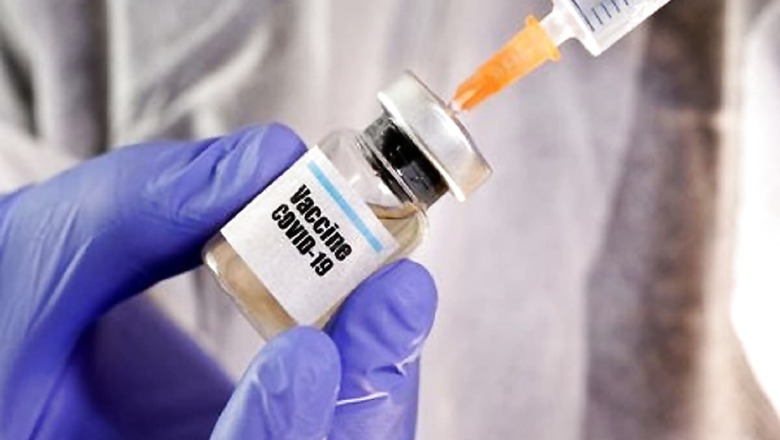
views
As Covid-19 vaccine trials move ahead at a break-neck speed, an approved vaccine is likely to hit the Indian market by the first quarter of 2021, Bernstein said in a report. Globally, there are 4 candidates that are close to approval by the end of 2020 or early 2021.
Through partnerships, India has access to two of those – AZ/Oxford's viral vector vaccine and Novavax's protein subunit vaccine. "Phase I/II data looks promising for both in terms of safety and the vaccine's ability to elicit an immune response," it said. "We are optimistic that there will be an approved vaccine in the market by 1Q calendar year 2021 in India." While the vaccine could be available at USD 3-6 (Rs 225 to Rs 550) per dose, herd immunity might be two years away due to implementation challenges, it said, adding the experience in large scale adult vaccination programmes is thin.
The polio eradication campaign in 2011 and the recent Intensified Mission Indradhanush (IMI) are examples of large-scale campaigns but the scale there was 1/3rd of what the COVID-19 vaccine implementation programme demands. Cold chain storage and trained manpower will be the biggest hurdles, it said. "Even assuming 2x current throughput, implementation in the government programme can take 18-20 months." "We believe, the first set of vaccines will be allocated to the vulnerable population – healthcare workers, population above 65 years followed by essential sector workers and the economically weaker section of the population," the brokerage said.
Detailing on vaccine trials, it said Novavax's candidate has shown higher levels of antibodies and viral neutralisation, about 5-6x HCS (Human Convalescent Sera) compared to AZ/Oxford's vaccine, which came close to average HCS levels. These, however, are not strictly comparable as the convalescent groups were different. But, both showed enough promise to progress to Phase III and trials are underway now. It also appears that both the candidates will require 2 doses to be administered 21/28 days apart.
Stating that Serum Institute of India (SII) is best positioned to deliver the first vaccine, Bernstein said SII has partnered with both AZ/Oxford and Novavax to manufacture and commercialise their vaccines on approval. SII has existing capabilities in both protein sub-unit (commercial) and viral vector (pipeline) technologies and their current capacities can be repurposed.
"We do not foresee manufacturing scale-up challenges," it said. "They are also investing in additional capacities of 1 billion doses and we estimate will be geared up to supply 600 million doses in 2021 and one billion doses in 2022 out of which 400-500 million should be available for India in 2021 keeping in mind their other commitments." Beyond SII, Zydus, Bharat Biotech, and Biological E are also working on their own vaccine candidates and are currently in Phase I/II. Bernstein said India's vaccine market can be USD 6 billion over FY21-22. "We estimate volumes to be split 55:45 between the government channel and private market and procurement prices to be USD 3 per dose for the government and end-consumer prices of USD 6 in the private market."
.

















Comments
0 comment